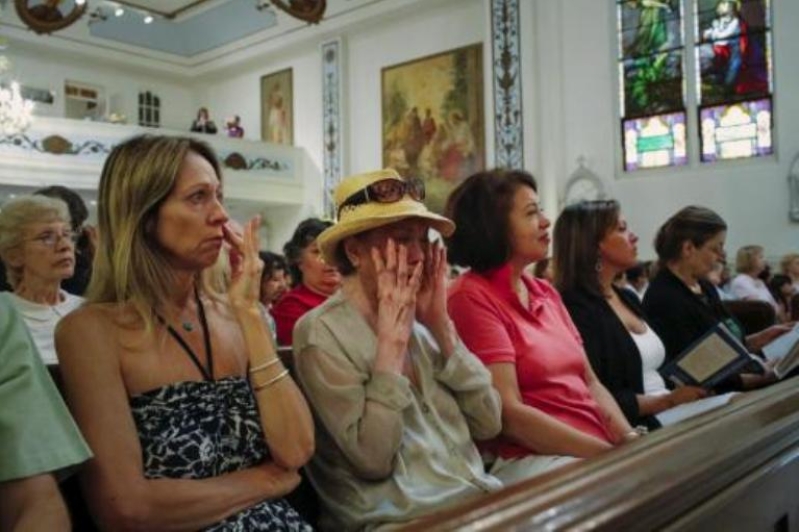
A Tempe, Ariz., church that opened in 1892, The First Congregational United Church of Christ, held its last service on Sunday due to low church attendance and an inability to financially support itself.
The remaining congregants don't know what will happen, given that a development company bought the once-sacred property. Members there had been going to the church that was built in 1953 to replace the original one.
"Tearing the building down does not destroy my memories," said 75-year-old Jean Behrens, who had attended the church since she was seven years old, as The Arizona Republic reported. The publication noted that 100-plus people attended the final service at the church.
"Whether you come from near or far, your presence is a blessing," Rev. Talitha Arnold, senior minister at the United Church of Santa Fe, told the crowd.
Other houses of worship across the country have closed as well, reports Fox News. Many Catholic parishes merged in recent years, under the Vatican's direction. The closings partially reflect a shift in U.S. faith practices, including those of millennials.
However, a religious landscape study done recently by the Pew Research Center found 70.6 percent of the U.S. population identifies as Christian. Among this group, evangelical Protestants compose the largest segment, at 25.4 percent, while Catholics make up 20.8 percent. Almost 23 percent of the American population identifies under an unaffiliated "religious nones" category.
"And the vast majority of these religious 'nones' (78 percent) say they were raised as a member of a particular religion before shedding their religious identity in adulthood," Pew noted.
The study surveyed more than 35,000 adults from all 50 states.
Pew Research Center surveys consistently show that not all religious 'nones' are nonbelievers, however. "In fact, the majority of Americans without a religious affiliation say they believe in God. As a group, however, the 'nones' are far less religiously observant than Americans who identify with a specific faith," stated the organization.
The Pew research analysis concluded younger generations are less religious than older ones in terms of rituals, such as praying daily and attending church service weekly. The study also suggests that in some ways, Americans are becoming more "spiritual."
Rev. Dr. David Roberts in Patheos, The Evangelical Pulpit, just commented about three tiny Methodist churches in Georgia about to close, after existing for more than a hundred years. All three churches will have final worship services in May and close officially by vote of the North Georgia Annual Conference of Methodists in June. He said one of the church's deed is dated 1886, the other two 1908 and 1915, and the congregations are older. Family members who were born and died in those congregations are buried in the church cemeteries.
"The church buildings will be abandoned like so many small-town malls, like the faith of many people in the face of despair -- or just a day's life," said Roberts, who is pastor in the Crawford Circuit of the Athens-Elberton District, North Georgia Conference of the United Methodist Church.
"A church closing is a reminder of the declining reliance on the institution of divine worship, whatever practice; a post-religion society."







